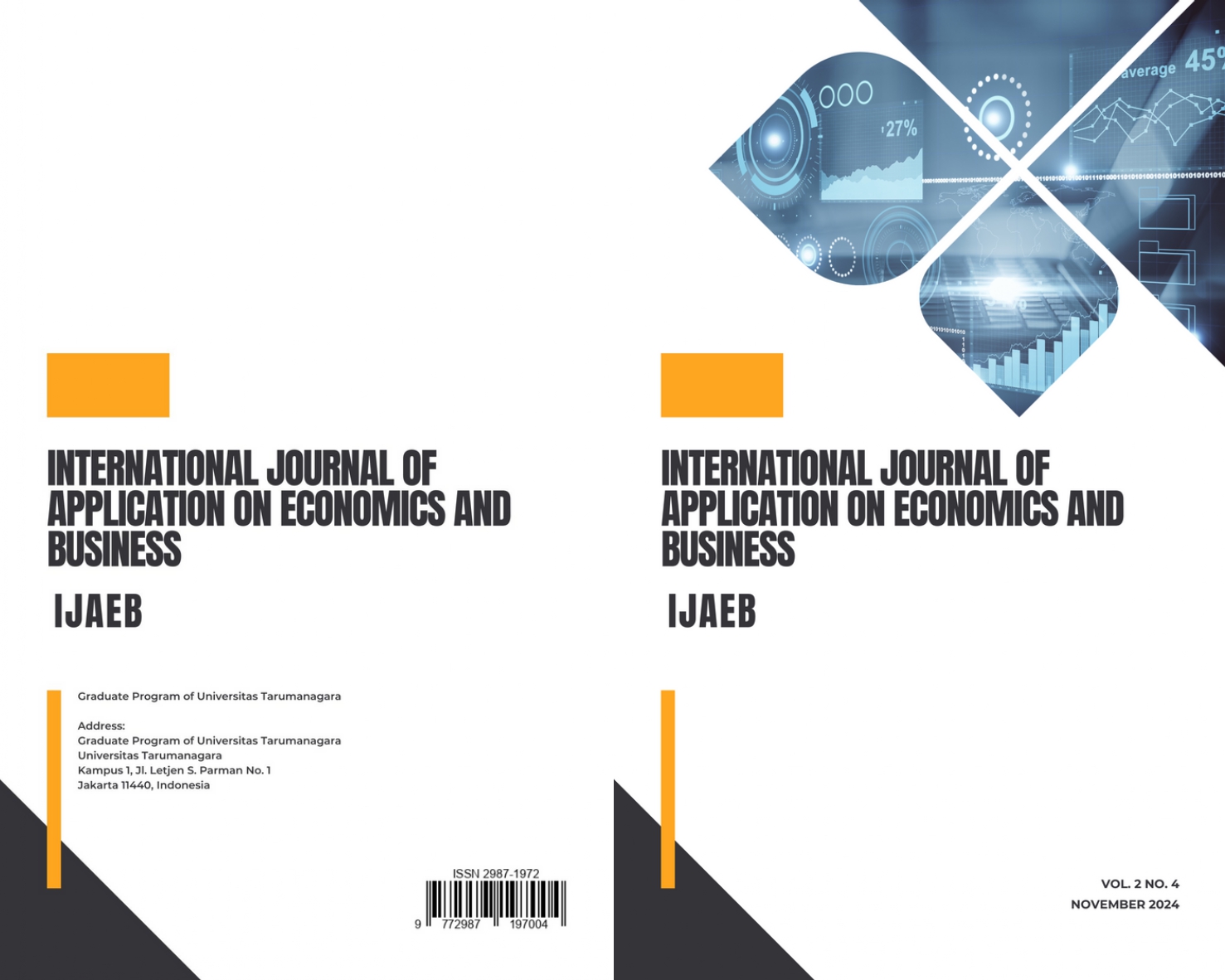THE INFLUENCE OF PRESSURE, PROCRASTINATION AND ABILITY ON AUDITOR ACADEMIC CHEATING DURING INTERNAL TRAINING FAUD BEHAVIOUR
Main Article Content
Abstract
This thesis addresses a significant research gap by investigating the influence of pressure, procrastination, and ability on academic cheating among auditors during internal training, specifically in online settings. Previous literature lacks comprehensive studies in this context, making this research essential for understanding cheating behaviors in the auditing profession. The study's practical relevance lies in informing organizations providing internal training to auditors, enabling the development of more effective programs and ethical guidelines. Addressing academic cheating is crucial for upholding auditors' integrity, maintaining trust within the industry, and improving educational methods. This research contributes to the academic literature on ethics, training, and professional development while providing insights for policymakers and professional bodies to establish guidelines against cheating. Through rigorous methodology including validity, reliability, normality, multicollinearity, and autocorrelation tests, the study confirms that pressure, procrastination, and ability significantly influence auditor academic cheating. The multiple linear regression analysis reveals that all three variables have positive effects on cheating behavior. The findings, supported by a strong R-squared value of 0.712, indicate that 68.5% of auditor academic cheating is explained by pressure, procrastination, and ability. The research results show that that pressure, procrastination have all demonstrated a positive influence on auditor academic cheating behavior perceived ability does not significantly influence on auditor academic cheating behaviour but still has positive correlation. So this research emphasizes the importance of addressing these factors in training programs to encourage ethical behavior and professionalism in the audit profession.
Article Details
Section

This work is licensed under a Creative Commons Attribution-NonCommercial-ShareAlike 4.0 International License.
This journal provides immediate open access to its content on the principle that making research freely available to the public supports a greater global exchange of knowledge.
IJAEB by Graduate Program of Universitas Tarumanagara is licensed under a Creative Commons Attribution-NonCommercial-ShareAlike 4.0 International License.. Permissions beyond the scope of this license may be available at https://journal.untar.ac.id/index.php/ijaeb
References
@inproceedings {Rui2004OnTT, title={On the Training of Accounting Professional Understanding and Professional Ethics}, author={Sun Rui},year={2004}, url={https://api.semanticscholar.org/CorpusID:156611582}}
Albrecht, W., Albrecht, C., Albrecht, C., & Zimbelman, M. (2012). Fraud Examination (Fourth Edition). South-Western: Cengage Learning.
Albrecht, W., Albrecht, C., Albrecht, C., & Zimbelman, M. (2012). Fraud Examination (Fourth Edition). South-Western: Cengage Learning.
Arifah, W., Setiyani, R., & Arief, S. (2018). Pengaruh Prokrastinasi, Tekanan Akademik, Religiusitas, Locus of Control Terhadap Perilaku Ketidakjujuran Akademik Mahasiswa Pendidikan Akuntasi UNNES. Economic Education Analysis Journal, 7(1), 106-119.
Cameron, R. and O'Leary, C (2015). Improving Ethical Attitudes or Simply Teaching Ethical Codes? The Reality of Accounting Ethics Education. Accounntinng education, Vol. 24 no. 4, pp. 275-290 https://doi.org/10.1080/09639284.2015.1036893
Cressey, D. R. 1950. The Criminal Violation of Financial Trust. American Sociological Review 15 (6): 738-743.
Ghozali, Imam. 2016. Aplikasi Analisis Multivariete Dengan Program IBM SPSS 23 (Edisi 8). Cetakan ke VIII. Semarang: Badan Penerbit Universitas Diponegoro.
Ghufron, N., & Risnawati, R. (2016). Psychological Theories. Yogyakarta: Arruzz Media.
Kusaeri, K. (2017). Study of Cheating Behavior of Madrasah and Islamic School Students During the National Examination. Eurasia: Journal of Islamic Education Research, 331-54.
M. Murdiana, E. Efendri, Z. Kisman, and D. S. Kanto, “The Influence of Academic Pressure, Academic Procrastination and Ability with Self Efficacy as a Moderating Variable on Student Academic Fraud Behavior,” Islam. Bank. J. Pemikir. dan Pengemb. Perbank. Syariah, vol. 8, no. 2, pp. 375–394, 2023.
Murdiana Murdiana, Efendri Efendri, Z. Kisman, D. Kanto. (2023). The Influence of Academic Pressure, Academic Procrastination and Ability with Self Efficacy as a Moderating Variable on Student Academic Fraud Behavior https://doi.org/10.36908/isbank.v8i2.698
Nursani, R., & Irianto, G. (2013). Student Academic Fraudulent Behavior: The Fraud Diamond Dimension. Journal of the Faculty of Economics and Business, University of Brawijaya.
Purnamasari, D. (2013). Factors Influencing Academic Cheating on Students. Educational Psychology Journal.
Ridhayana, R., Ansar, R., & Mahdi, S. A. (2018). Pengaruh fraud triangle dan tingkat religiusitas terhadap perilaku kecurangan akademik (studi pada mahasiswa s-1 Universitas Khairun). Jurnal TRUST Riset Akuntansi, 5(2).
Santoso, D., & Yanti, HB (2015). The Effect of Dishonest Behavior and Moral Competence on Accounting Student Academic Cheating. Accounting, Auditing & Information Research Media, 1-16.
Sunjoyo et al. (2013:73). Aplikasi SPSS untuk Smart Riset. Bandung: Alfabeta.
Usman, O., & Izzati, N. N. (2020). The Effect of Procrastination, Academic Pressure, and Locus of Control Toward Academic Dishonesty Behavior. Academic Pressure, and Locus of Control Toward Academic Dishonesty Behavior (July 9, 2020).
Wolfe, D., & Hermanson, D. (2004).Print The Fraud Diamond: Considering the Four Elements of Fraud. 12(Exhibit 1), 1–5. Crowe Horwath. 2011: Article on Fraud.
Wolfe, D., & Hermanson, D. (2004).Print The Fraud Diamond: Considering the Four Elements of Fraud. 12(Exhibit 1), 1–5. Crowe Horwath. 2011: Article on Fraud.
Yudiana, A., & Lastanti, H. (2016). Analysis of the Influence of Fraud Diamond Dimensions on Academic Fraud Behavior of Students of the Faculty of Economics. National Seminar and Call Paper, 412-422
Z. Todorovic. (2018). Application of Ethics in the Accounting Profession with an Overview of the Banking Sector. Journal of Central Banking Theory and Practice 7 (3), pp. 139-158, ISSN 1800-9581. https://doi.org/ 10.2478/jcbtp-2018-0027

